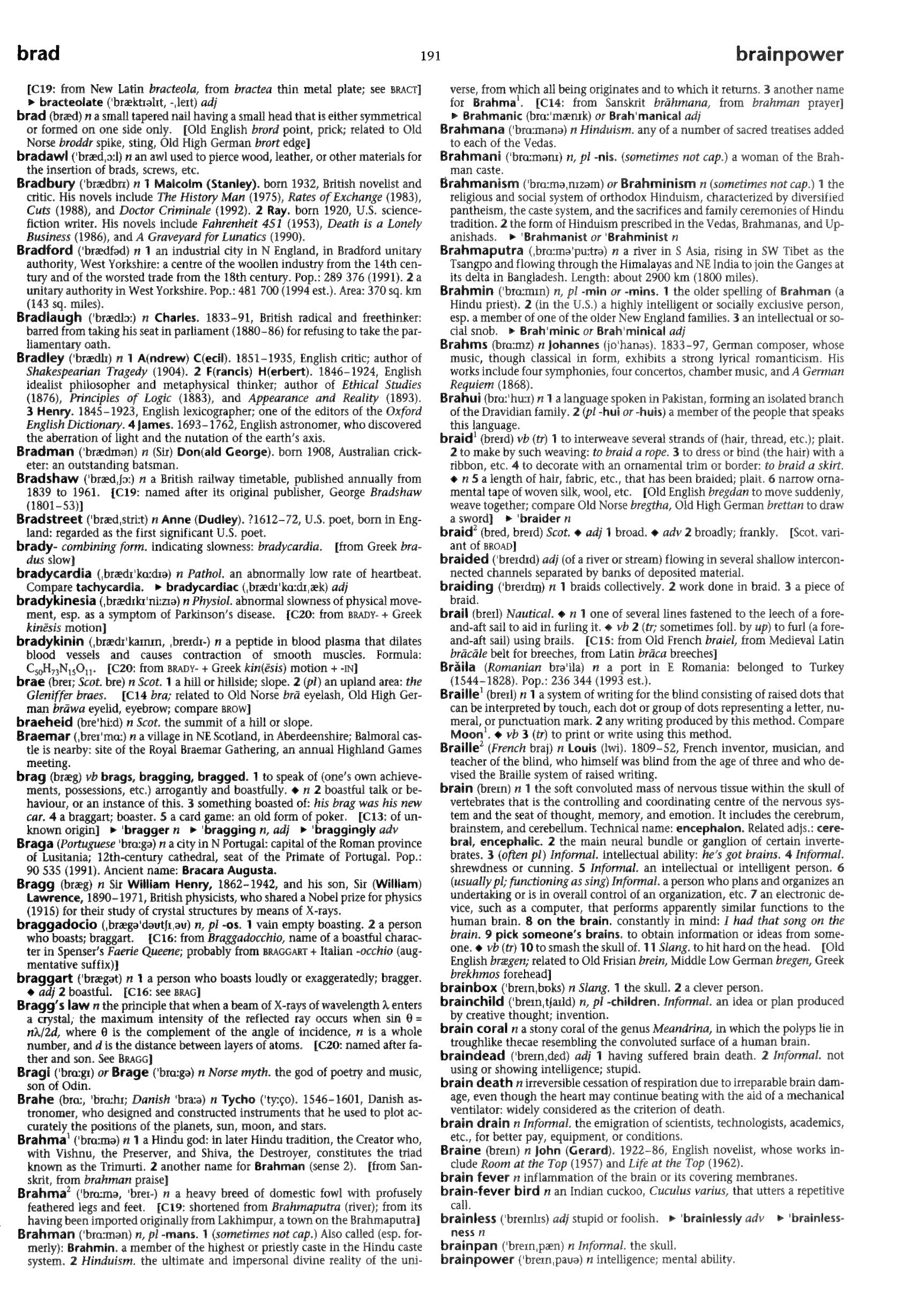Definition of "Brain"
Source: Collins English Dictionary. Millennium Edition
S.v., Brain
| 1. |
the soft convoluted mass of nervous tissue within the skull of vertebrates that is the controlling and coordinating centre of the nervous system and seat of thought, memory, and emotion. It includes the cerebrum, brainstem, and cerebellum. Technical name: encephalon. Related adjs.: cerebral, encephalic. |
|
| 2. |
The main neural bundle or ganglion of certain invertebrates. |
|
| 3. |
(often pl) Informal. intellectual ability; he's got brains. |
|
| 4. |
Informal. shrewdness or cunning. |
|
| 5. |
Informal. an intellectual or intelligent person. |
|
| 6. |
(usually pl; functioning as sing) Informal. a person who plans and organizes an undertaking or is in overall control of an organization, etc. |
|
| 7. |
an electronic device, such as a computer, that perform apparently similar functions to the human brain. |
|
| 8. |
on the brain. constantly in mind: I had that song on the brain. |
|
| 9. |
pick someone's brains. to obtain information or ideas from someone. |
|
| 10. |
(tr) to smash the skull of. |
|
| 11. |
Slang. to hit hard on the head. |
Treffry, CED ME, 191. [View as image] [Read on OMNIKA]
Page Image(s)

Example sentences
Coming soon.
Citation
PsychLing Contributors. "Brain." PsychLing, OMNIKA Foundation, 24 Jul. 2023, psylng.org/mli/indo/eng/brain. Accessed 22 Feb. 2026.
Bibliography
Internet Archive Contributors. "Wayback Machine." San Francisco, CA: Internet Archive. Created October 24, 2001. Accessed July 21, 2023. https://web.archive.org. [Visit]
OMNIKA Foundation Contributors. "OMNIKA: Digital Mythology Library." Las Vegas, NV: OMNIKA Foundation. Created January 21, 2019. Accessed July 28, 2023. https://omnika.org. [Visit]
Treffry, Diana, ed. Collins English Dictionary: Millennium Edition. 4ed. Glasgow, Great Britain: HarperCollins Publishers, 1998.
Wales, Jimmy D., et al. "Wiktionary: The Free Dictionary." San Francisco, CA: Wikimedia Foundation, Inc. Created December 12, 2002. Accessed July 28, 2023. https://wiktionary.org. [Visit]
PsychLing Glossary
Language is a term in
PsychLing Glossary
Language Family is a term in
PsychLing Glossary
Proto-Language is a term in
PsychLing Glossary
Psycholinguistics is a field of study that concerns the scientific study of the relationship between human behavior and language.
Read morePsychLing Glossary
Reconstruction is a term in

